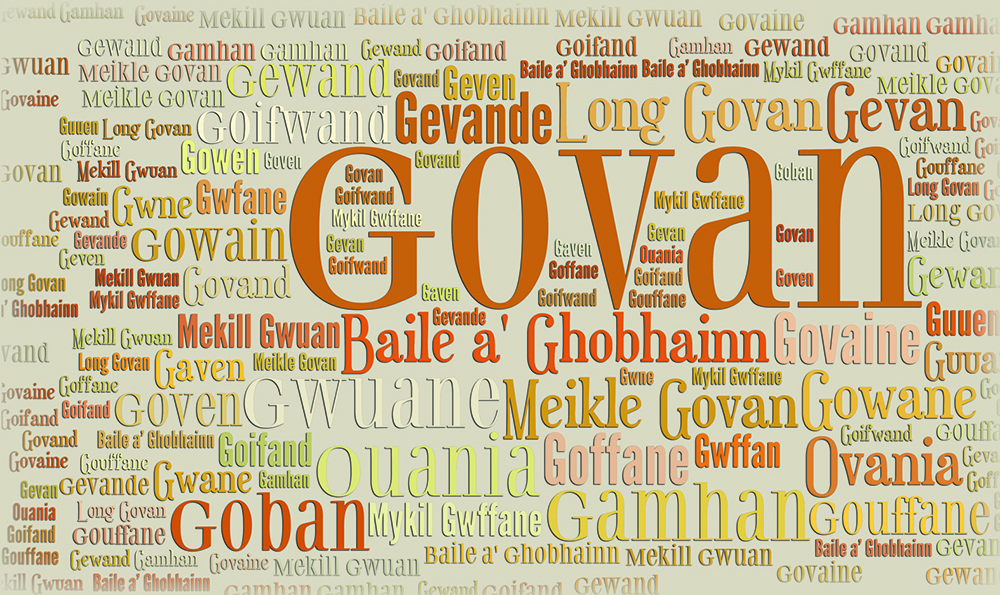In the Name o' Govan
The origin and meaning of the name Govan itself is perhaps the most disputed aspect of Govan’s rich history. Guuen, Ouania, Gobann, Gowan and Gofan are all just a few of the numerous forms of the name Govan, this wide variation has led to much debate over its meaning and language of origin. The earliest recorded attempts to explain its meaning was in 1578 by Bishop John Leslie who said it was derived from two Anglo-Saxon words, God + win, meaning Good wine, a later meaning of similar Anglo-Saxon origin was given as God’s haven. However, these Old English origins for a place-name as far north as Govan are very unlikely.

For many decades the consensus was that the place-name Govan was of Gaelic origin, and was derived from gobae and gobann which means Smith. These words are also the basis of the name Gowan and Baile á Ghobhainn, which is the modern Scottish Gaelic name for Govan, and which translates to “Place of the Smith”. However, this is contradicted by the fact that Govan had been part of the kingdoms of Alt Clut and Strathclyde from at least the 6th century until the 11th century and both kingdoms spoke a Brittonic language similar to Welsh named Cumbric. Furthermore, Partick which is closely associated with Govan was derived from the Cumbric name Peartoc and later adopted into Scottish Gaelic as Pàrtaig, Brotchie in his “History of Govan” similarly states that the “name [Govan ] is Gaelic (Gobha, Gowan) as well as British (Gofan)” with both meaning Smith.
More recently Professor Thomas Clancy is also of the opinion that the place-name Govan is derived from Cumbric but suggests a different meaning equivalent to the Welsh words go (little) and ban (hill), he also suggests that Goban (Little Hill) could refer to the ancient Doomster Hill. Guuen recorded c1134 was thought to be the earliest form of the place-name Govan, this word would appear to be of a Gaelic structure, however Ouania recorded earlier in the “Northumbrian Chronicles” for the year 756 is thought to be a Latinised form of Gwovan, an earlier version of Goban which also means Little Hill.
Recorded Variations: Govan, Meikle Govan, Long Govan, Baile á Ghobhainn, Gamhan, Gaven, Gevan, Gevand, Gevande, Geven, Gewan, Gewand, Goban, Gobha, Gofan, Goffane, Goifand, Goifwand, Gouffane, Govain, Govaine, Govand, Goven, Gowain, Gowan, Gowane, Gowen, Guuan, Guuen, Gwane, Gwfane, Gwne, Gwuan, Gwuane, Ouania, Ovania, Sunny Govan.